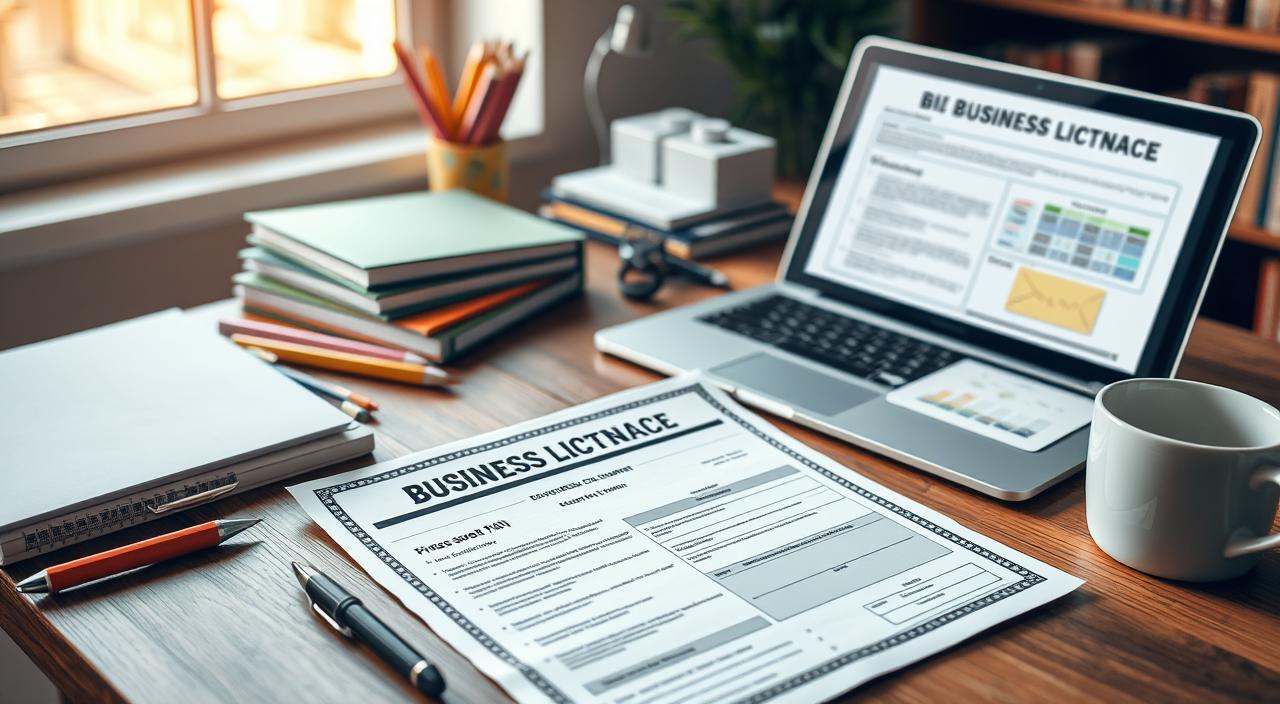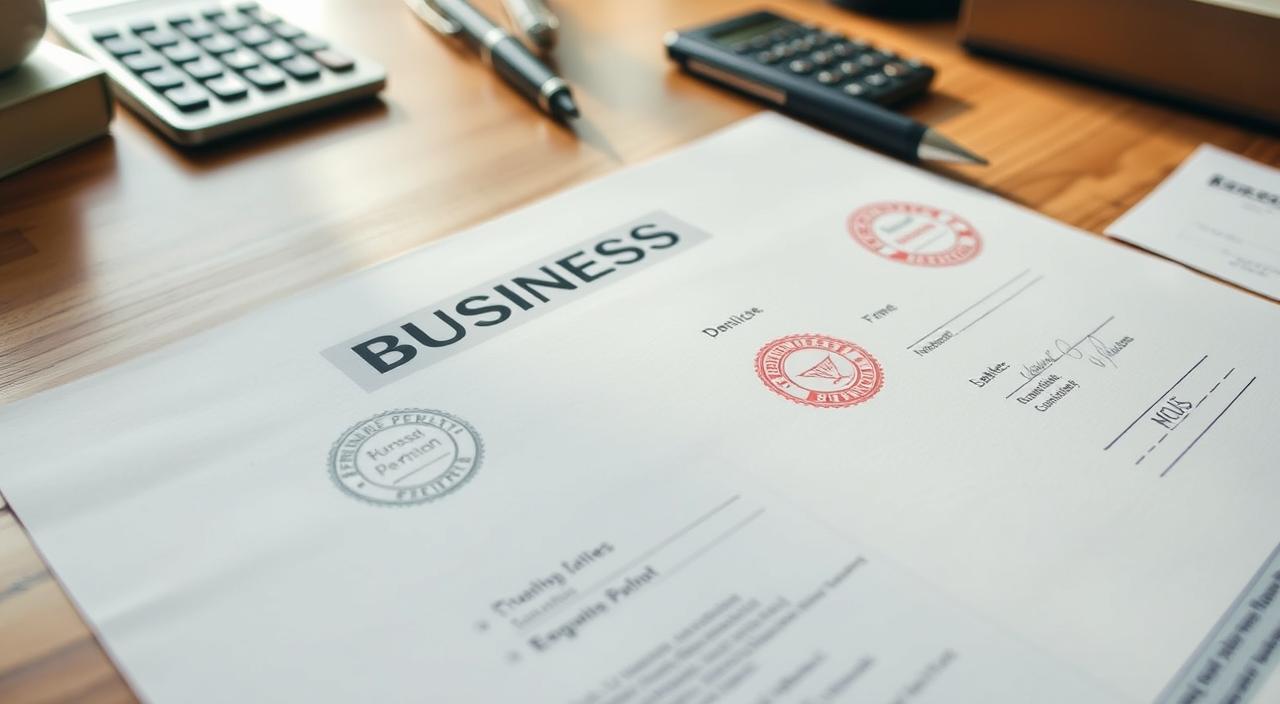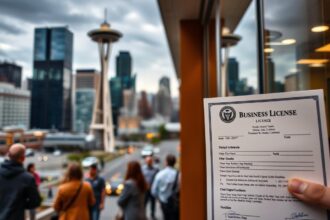Ever wondered about the purpose of a business permit? Getting the right licenses and permits is key to starting a legal business. But what do these documents mean, and why are they so crucial? Let’s dive into the answers and see how business permits help your business thrive.
In the United States, most businesses must follow federal, state, and local laws to operate. This includes getting a seller’s permit and zoning approvals. It might seem tough, but knowing what these documents are and why you need them is vital for business success.
Understanding Business Licenses and Permits
Starting or growing a business means dealing with licenses and permits. A business license lets you operate legally, based on state or government rules. Some licenses need a test to show you know the rules, while others are just a formality.
A business permit lets you run your business in a certain place or do a specific thing. Getting the right permits shows you follow local laws and keep people safe.
What is a Business License?
To get a business license, you first need to set up your business. Then, you must get an employer identification number (EIN). This number is for federal taxes and helps you follow the law.
What is a Business Permit?
Business permits are for certain types of businesses, like selling things or running a restaurant. Not having the right permits can cause big problems, like fines or even closing your business. So, it’s key to know what permits you need.
| Type of Business License | Description |
|---|---|
| General Business License | Includes permits for sales tax, workers’ compensation, and payroll forms. |
| Regulatory Permits | Required for industries like construction, transportation, and food businesses. |
| Local Business Licenses | Imposed by cities and counties on various businesses operating within their jurisdictions. |
| Professional Licenses | Needed for occupations requiring a certain level of skill or knowledge, such as doctors, lawyers, and accountants. |

What is the Purpose of a Business Permit?
Getting the right business permits is key to starting a legal and compliant business. The main goal of a business permit is to make sure a company follows the law and operates legally.
Business permits show that a company meets public safety regulations and follows local laws. Not having the right permits can lead to fines or even the shutdown of the business. It’s important to get the right permits before starting work, setting up, or buying property to avoid extra costs and delays.
- Business permits show a company’s commitment to operating legally and protecting the public.
- Permits help avoid fines and shutdowns by proving a business follows the rules.
- Getting the right permits lets a business legally operate without problems or legal issues.
In short, business permits are for legal compliance, public safety, and keeping a business operating legally. They help avoid expensive fines and shutdowns.

Common Types of Business Permits
Understanding business permits is key for entrepreneurs and business owners. Different permits are needed for selling products or running a home-based business. These ensure you follow local, state, and federal rules.
Seller’s Permit
A seller’s permit, or resale tax number, is vital for businesses selling goods or services. It lets you collect sales tax from customers and send it to the right tax agency. You need a seller’s permit to start a retail or wholesale business.
Building and Zoning Permits
Commercial or residential properties need building and zoning permits. A building permit checks if construction meets safety and building codes. Zoning permits make sure your business fits the area’s rules.
Some businesses need special licenses, like for food service or healthcare. It’s crucial to know what your business needs. This ensures you follow all laws and regulations.
| Permit Type | Purpose | Typical Requirements |
|---|---|---|
| Seller’s Permit | Allows the collection and remittance of sales tax | Business registration, tax ID number, sales tax rate information |
| Building Permit | Ensures construction/renovation compliance with building codes | Detailed plans, property details, contractor information |
| Zoning Permit | Confirms the business activity aligns with local zoning regulations | Property zoning designation, business use details, compliance with local ordinances |
Remember, the rules for business permits change based on location, industry, and business type. Entrepreneurs need to research and understand the permits needed. This ensures their business is legal and follows all rules.
Conclusion
Keeping up with licensing and permit rules is key for a business to run legally and successfully. These rules differ by location and industry and can change as a business grows. Not following them can lead to fines, penalties, or even shutting down the business. This can harm its reputation and goodwill.
Businesses need to check their license and permit requirements often when applying. They should update their registrations when needed and follow all laws and regulations. By focusing on business compliance, companies can avoid problems and keep a good image with customers, suppliers, and authorities.
Businesses need to stay up-to-date on licensing and permit rules. This helps them operate legally and avoid legal troubles. Being committed to compliance boosts trust and reliability with the public. This leads to more customer confidence and chances for repeat business.





